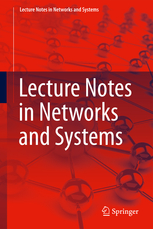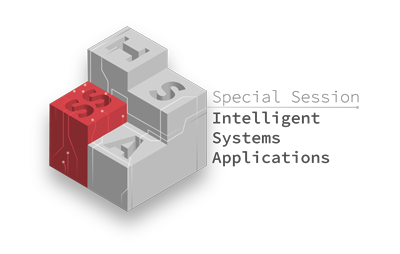Scope
Computational and technological developments that incorporate natural language and reasoning methods are proliferating. Adequate coverage encounters difficult problems related to the phenomena of partiality, underspecification, perspectives of agents, and context dependency. These phenomena are signature features of information in nature, natural languages, and reasoning.
The session covers theoretical work, applications, approaches, and techniques for computational models of information, language (artificial, human, or natural in other ways), and reasoning. The goal is to promote computational systems and related models of language, thought, reasoning, and other related processes.
Topics
We invite contributions relevant to the following topics, without being limited to them, across approaches, methods, theories, implementations, and applications:
- Theorem Provers and Assistants
- Model Checkers
- Theories of Computation
- Theories of Information
- Computational Methods of Inferences in Natural Language
- Computational Theories and Systems of Reasoning in Natural Language
- Transfer of reasoning in natural language to theorem provers, or vice versa
- Transfer of reasoning between natural language, theorem provers, model checkers, and various computational assistants
- Translations between natural language of mathematics and formal languages of proof and verification systems
- Controlled Languages of Mathematics
- Computational approaches of Computational Linguistics, e.g., in domain specific areas
- Theories for applications to language, semantics, reasoning, and information processing
- Type Theories for applications to language, semantics, reasoning, and information processing
- Computational Grammar
- Computational Syntax
- Computational Semantics of Natural Language
- Computational Syntax-Semantics Interface
- Interfaces between morphology, lexicon, syntax, semantics, speech, text, pragmatics
- Parsing
- Multilingual Processing
- Large-Scale Grammars of Natural Languages
- Models of computation and algorithms for linguistics, natural language processing, argumentation
- Computational Models of Partiality, Underspecification, and Context-Dependency
- Models of Situations, Contexts, and Agents, for Applications to Computational Linguistics
- Information about Space and Time in Language Models and Processing
- Interdisciplinary Methods
- Integration of formal, computational, model theoretic, graphical, diagrammatic, statistical, and other related methods
- Logic for information extraction or expression in written, spoken, and other modes of language
Logic for information integrations of diagrams with language
- Computational Models of Argumentations
- Large Language Models (LLM)
- Data Science and Language Processing
- Machine Learning of Language and Reasoning
- Interactive Computation, Reasoning, Argumentation
- Computation with heterogeneous information
- Reasoning with heterogeneous and/or inconsistent information
- Dialog and other Interactions
- Interdisciplinary approaches to language, computation, reasoning, memory
- Computational processing of information and languages in various specific areas and domains, e.g., in forensics, medical sciences, healthcare, jurisdiction, law, etc.
- Applications, e.g., to governing, education, business, economy, justice, health, medical sciences, etc.
- Computational processing of language based on natural fundamentals of information and languages
- Computational neuroscience of language
- etc.
Organizing Committee
- Roussanka Loukanova, Institute of Mathematics and Informatics, Bulgarian Academy of Sciences, Bulgaria
- Sara Rodríguez, University of Salamanca, Salamanca, Spain
Program Committee
- Benedikt Ahrens, Delft University of Technology, The Netherlands | School of Computer Science, University of Birmingham, United Kingdom
- Krasimir Angelov, University of Gothenburg and Chalmers University of Technology, Gothenburg, Sweden
- Marie Duzi, VSB-Technical University of Ostrava, Ostrava, Czech Republic
- Antonín Dvořák, University of Ostrava, Ostrava, Czech Republic
- Annie Foret, IRISA and Univ Rennes 1, France
- Håkon Robbestad Gylterud, University of Begen, Bergen, Norway
- Lars Hellan, Norwegian University of Science and Technology, Trondheim, Norway
- Ali Hürriyetoğlu, Koç University, Istanbul, Turkey
- M. Dolores Jiménez López, GRLMC-Research Group on Mathematical Linguistics, Universitat Rovira i Virgili, Tarragona, Spain
- Manfred Kerber, School of Computer Science, University of Birmingham, United Kingdom
- Stepan Kuznetsov, Steklov Mathematical Institute, Russian Academy of Sciences, Moscow, Russia
- Kristina Liefke, Ruhr-University Bochum, Bochum, Germany
- Inari Listenmaa, Centre for Computational Law, Singapore Management University, Singapore
- Zhaohui Luo, Royal Holloway, University of London, London, United Kingdom
- Richard Moot, Université de Montpellier and LIRMM-CNRS, Montpellier, France
- Petra Murinová, Institute for Research and Applications of Fuzzy Modeling, University of Ostrava, Ostrava, Czech Republic
- Rainer Osswald, Heinrich-Heine-Universität Düsseldorf, Düsseldorf, Germany
- Christian Retoré, Université de Montpellier and LIRMM-CNRS, Montpellier, France
- Frank Richter, Goethe University Frankfurt a.M., Frankfurt, Germany
- Ana Paula Rocha, University of Porto, LIACC / FEUP, Porto, Portugal
- Sylvain Salvati, Université de Lille, INRIA, CRIStAL UMR 9189, Lille, France
- Milena Slavcheva, Bulgarian Academy of Sciences, Sofia, Bulgaria
- Alexey Stukachev, Sobolev Institute of Mathematics, Novosibirsk State University, Novosibirsk, Russia
- Jørgen Villadsen, Technical University of Denmark, Copenhagen, Denmark
- David Cerna, Czech Academy of Sciences Insitute of Computer Science, Praha, Czechia
- Justyna Grudzińska, University of Warsaw, Poland
- Roberto Maieli, Department of Mathematics and Physics, University "Roma Tre", Italy
- Denis Bechet, Laboratoire des Sciences du Numérique de Nantes, France
Contact
Roussanka Loukanova
Institute of Mathematics and Informatics, Bulgarian Academy of Sciences, Bulgaria
rloukanova@gmail.com

